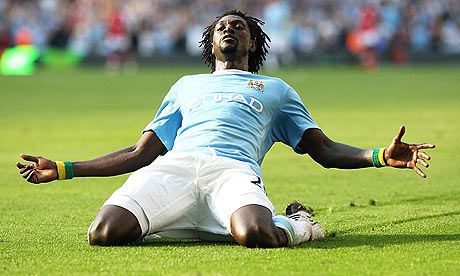
There are certain signs that you know you’re getting older. You start fancying your mate’s mum, you can’t get up and down the touchline like you once could, getting up in the morning takes that extra 10 seconds longer sitting on the edge of the bed.
I can still hop out of bed ok, I’m actually a better runner now that I ever was and, at my age, the notion of fancying any of my friends’ mothers isn’t just wrong, it’s plain weird.
Still, my youthful step was brought to a shuddering halt this week when, driving around the wilds of Cheshire on doorknocks, Jamie Cullum came on Radio 5.
Now I’ll be honest here. I’ve always regarded Cullum as an annoying little squirt, the pint-sized twerp prancing around and jumping off pianos. He’s annoying and his music’s rubbish. I like rock. I like pop. I can’t stand this self-indulgent type of pseudo pop-jazz.
So I was minded to turn the radio off but couldn’t be bothered. It was a nice day, the view of the High Peaks was beautiful and besides, Simon Mayo, regardless of the quality of guest on his show, is relentlessly brilliant.
So it was with a growing mix of pleasure and self-disgust that I not only stuck with Cullum, but starting enjoying him. He was refreshingly self-deprecating and fun.
And then they played a couple of excerpts from his new album, including a song he co-wrote with one of my teenage heroes, Ricky Ross. And it sounded good.
This meant I was enjoying listening to Jamie Cullum and his music. The panic really started to set in once I realised I was thinking ‘why don’t I buy the album?’. Go on, the little devil on my shoulder teased, give it a go.
I stopped myself there, thankfully. Not because the album’s no good, I’m sure it’s extremely good.
But handing over that £7.99 to iTunes would represent a seminal moment in my life. That moment of passing when you know that once done, things will never been the same, that a slice of your youth has been forever lost.
These are things you should not let go lightly. Thought and effort should be exerted before signing your life away.
So, clinging on desperately, I won’t buy the album.
This isn’t fair on Cullum, who is clearly hugely talented, and I'm sure he won't really mind, but I just can’t admit to myself the truth.
If I do, where will it all stop? What next? Katherine bloody Jenkins?
No, the cork must go in and a line drawn in the sand.
And if that means a fiver less in Jamie’s bank account, then I’m a sorrier, but far happier man.
I can still hop out of bed ok, I’m actually a better runner now that I ever was and, at my age, the notion of fancying any of my friends’ mothers isn’t just wrong, it’s plain weird.
Still, my youthful step was brought to a shuddering halt this week when, driving around the wilds of Cheshire on doorknocks, Jamie Cullum came on Radio 5.
Now I’ll be honest here. I’ve always regarded Cullum as an annoying little squirt, the pint-sized twerp prancing around and jumping off pianos. He’s annoying and his music’s rubbish. I like rock. I like pop. I can’t stand this self-indulgent type of pseudo pop-jazz.
So I was minded to turn the radio off but couldn’t be bothered. It was a nice day, the view of the High Peaks was beautiful and besides, Simon Mayo, regardless of the quality of guest on his show, is relentlessly brilliant.
So it was with a growing mix of pleasure and self-disgust that I not only stuck with Cullum, but starting enjoying him. He was refreshingly self-deprecating and fun.
And then they played a couple of excerpts from his new album, including a song he co-wrote with one of my teenage heroes, Ricky Ross. And it sounded good.
This meant I was enjoying listening to Jamie Cullum and his music. The panic really started to set in once I realised I was thinking ‘why don’t I buy the album?’. Go on, the little devil on my shoulder teased, give it a go.
I stopped myself there, thankfully. Not because the album’s no good, I’m sure it’s extremely good.
But handing over that £7.99 to iTunes would represent a seminal moment in my life. That moment of passing when you know that once done, things will never been the same, that a slice of your youth has been forever lost.
These are things you should not let go lightly. Thought and effort should be exerted before signing your life away.
So, clinging on desperately, I won’t buy the album.
This isn’t fair on Cullum, who is clearly hugely talented, and I'm sure he won't really mind, but I just can’t admit to myself the truth.
If I do, where will it all stop? What next? Katherine bloody Jenkins?
No, the cork must go in and a line drawn in the sand.
And if that means a fiver less in Jamie’s bank account, then I’m a sorrier, but far happier man.
pic: yahama.com































